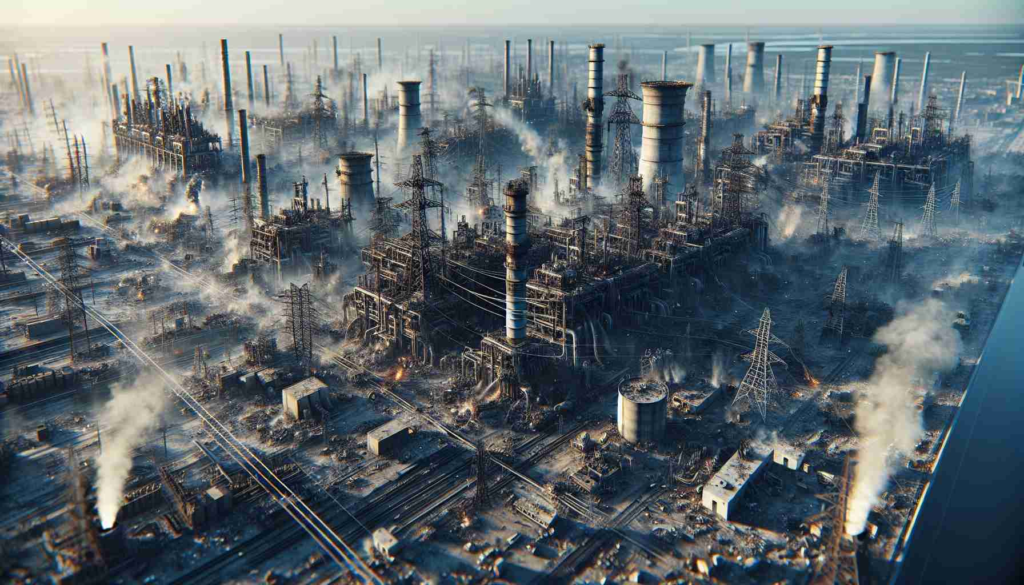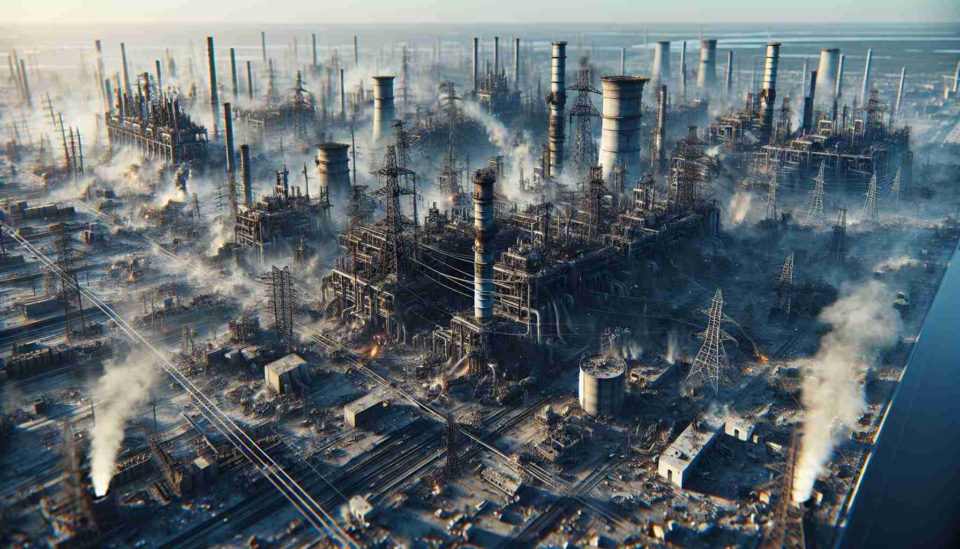
In the wake of relentless Russian military actions against Ukraine, the country’s energy sector has suffered significant setbacks. The largest private energy company in Ukraine, DTEK, has reported substantial damage to its facilities due to these attacks. Despite the damage to its infrastructure, DTEK is committed to restoring power, revealing that the process could extend over a year and a half.
During recent escalations, five out of DTEK’s six power plants encountered severe impairments, with thermal and hydro power plants in various regions being targeted. These attacks caused an estimated loss of 80% in the firm’s generating capacity. The depicted scenes of destruction include residential areas, reflecting the increased intensity and scope of the Russian strikes aimed not only at crippling Ukraine’s energy capabilities but also at shaking the resolve of the Ukrainian populace.
Ukrainian President Volodymyr Zelenskiy characterized Russia’s offensive as strategic attempts to drain Ukraine’s energy resources, further emphasizing the urgency for international aid to bolster the nation’s defense against these assaults. DTEK has shouldered extensive financial losses, reaching $US300 million for equipment damage alone. Repair costs and labor could demand substantial additional investment.
The recovery process involves intricate and time-consuming manufacturing of essential components such as turbines, generators, and transformers. This rebuilding phase is critical for the resumption of full energy services, but the gradual nature of these repairs means that power will be restored incrementally over an extended timeframe.
Impact on the Energy Industry
The energy sector in Ukraine is highly integral to the country’s economy and pivotal for its independence and stability. The damages sustained by DTEK due to the military actions can severely affect not just the industry but also the overall functioning of the nation. Restoring power is not only a matter of economic urgency but also a humanitarian priority, as energy is essential for heating, health services, and communication—particularly during times of conflict.
Market Forecasts
Predicting the market’s response to such upheaval is challenging. Yet, while the immediate outlook seems grim, the reconstruction of Ukraine’s energy infrastructure presents opportunities for investment in more resilient and sustainable energy systems. It may also accelerate the adoption of renewable energy sources, potentially yielding longer-term benefits for the industry and the environment. However, full recovery hinges on the resolution of the conflict and the stability of the region.
Industry Resilience and Challenges
The resilience of energy companies like DTEK is being tested severely. Beyond physical damages, there are issues related to cybersecurity, as energy infrastructure is a prime target for cyberattacks—a facet of modern warfare that could disrupt services without physical damage. Additionally, there are challenges in securing funding for repairs amidst a war economy and potential difficulties in obtaining the necessary components due to global supply chain disruptions.
Accessing sufficient skilled labor could also present challenges, as many capable professionals might have been displaced or otherwise unable to contribute to rebuilding efforts due to the conflict. Aligning all these variables to initiate recovery efforts is a monumental task in an environment already strained by the demands of ongoing military engagements.
International Assistance and Cooperation
Considering President Zelenskiy’s call for international aid, it becomes clear that global cooperation is imperative to support Ukraine’s energy sector. International financial institutions, partner countries, and private investors all potentially play crucial roles in helping restore and modernize Ukraine’s energy infrastructure.
Conclusion
The systematic targeting of Ukraine’s energy infrastructure has resulted in extensive losses for private companies such as DTEK and has broader implications for the country’s socio-economic stability. As the Ukrainian energy sector battles to overcome the sustained damages, the international community’s role becomes more pronounced, necessitating a concerted effort to support Ukraine’s recovery and future resilience. This example also underscores the importance of robust and diversified energy systems that can withstand geopolitical pressures and contribute to national security.
For those looking to understand more about the global energy markets and informative discussions on the resilience of energy infrastructure, a reputable source would be the International Energy Agency, which you can visit via this link.

Igor Nowacki is a fictional author known for his imaginative insights into futuristic technology and speculative science. His writings often explore the boundaries of reality, blending fact with fantasy to envision groundbreaking inventions. Nowacki’s work is celebrated for its creativity and ability to inspire readers to think beyond the limits of current technology, imagining a world where the impossible becomes possible. His articles are a blend of science fiction and visionary tech predictions.

